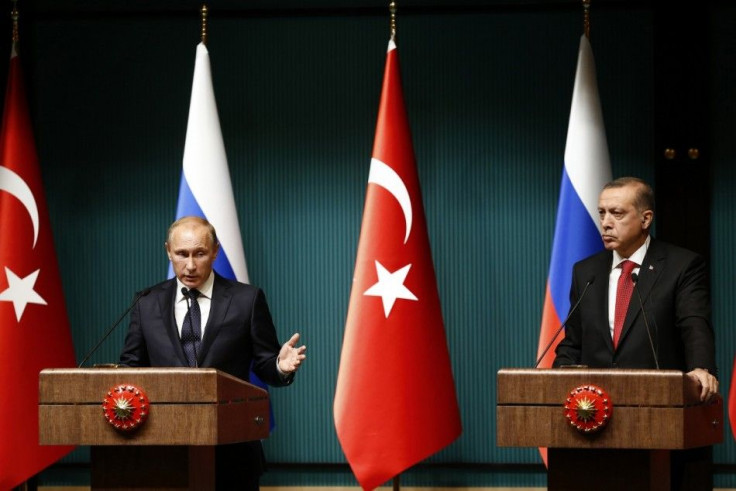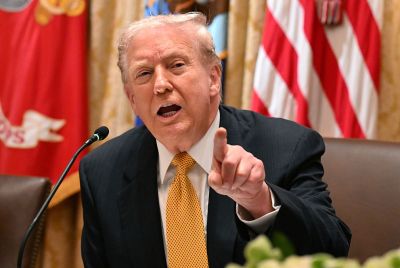Europe At Fault South Stream Gas Pipeline Project Didn’t Push Through – Russia’s Putin

Seemingly frustrated over how Europe had prevented the realization of the South Stream pipeline, Russian President Vladimir Putin on Monday announced he is no longer keen on pursuing the project. Instead, Russia will turn its focus of delivering gas to Turkey.
He said he had tried to convince Europe of the necessity of the project to the entire region. But the project had continued to face resistance. "If Europe does not want to carry it out, then it will not be carried out," Mr Putin said at a joint news conference with Turkish president Recep Tayyip Erdoğan.
Mikhail Krutikhin, a Russian energy analyst quoted by The Guardian, however, Russia's decision to drop the gas pipeline project was all "political" and the main trigger was Ukraine. He believed Russia didn't want the gas to flow in Ukraine as part of its alliance to the western powers. Russia wants to "punish Ukraine and cut it off from gas flows. It was never economical to spend so much on this pipeline."
Gazprom, Russia's state-controlled gas exporter and project owner of the South Stream pipeline, had been consistently denied by the European Commission the exemption it needs to operate the pipeline at full capacity. European nations had viewed the gas line project as an instrument that Moscow will use to wield economic control over southern and eastern Europe. The $40 billion South Stream pipeline, with a design capacity of 63 billion cubic metres a year, was supposed to enter the region through Bulgaria. It is due to be completed by 2018.
Alexei Miller, Gazprom's chief executive, confirmed to reporters in Ankara that the South Stream was "closed. This is it." Mr Putin further stressed it would be ridiculous for Russia to push the project, invest a lot of money to see it through, bring it to Bulgaria's borders and then just "having to drop it from there on." The cancellation of the project, Mr Putin claimed, will Bulgaria €400 million a year in foregone income. Had Bulgaria behaved "as an independent country" over the issue, he said it will not lose the project and the projected income as well.
Bulgaria would give the necessary permissions, Mr Putin said. "Of course, this is the choice of our friends in Europe."
In exchange of the lost South Stream project, Russia instead will focus on Turkey. The two countries will work on an alternative pipeline to Turkey that would terminate at a gas-distribution hub on the Greek border. More than half or 60 percent of Turkey's natural gas is imported from Russia.
Despite opposing views on Syria, Professor Huseyin Bagci of Ankara's Middle East Technical University told AP that "Turkey will continue to purchase energy from Russia." Mr Erdogan is Syrian President Bashar al-Assad's most vocal critic. Mr Putin meantime had consistently backed up Mr Assad. Moreover, Turkey has links with Crimea's Muslim Tatar population. In March, Russia annexed Crimea from Ukraine.
But things fizzled out for the South Stream project not only because of the EU's rejections. Mikhail Korchemkin, a Gazprom analyst with the East European Gas Analysis, told Reuters that Gazprom also failed to raise the money needed to complete the project. This was after the sanctions went into place. "By invading Crimea, Putin has created a major barrier for the South Stream project," he said.
Read: Russia Wants Iran's Oil in Exchange for Grain
Read: Global Nuclear Arms Race: Russia Successfully Test Fires Bulava Intercontinental Missile From Nuclear Submarine





















